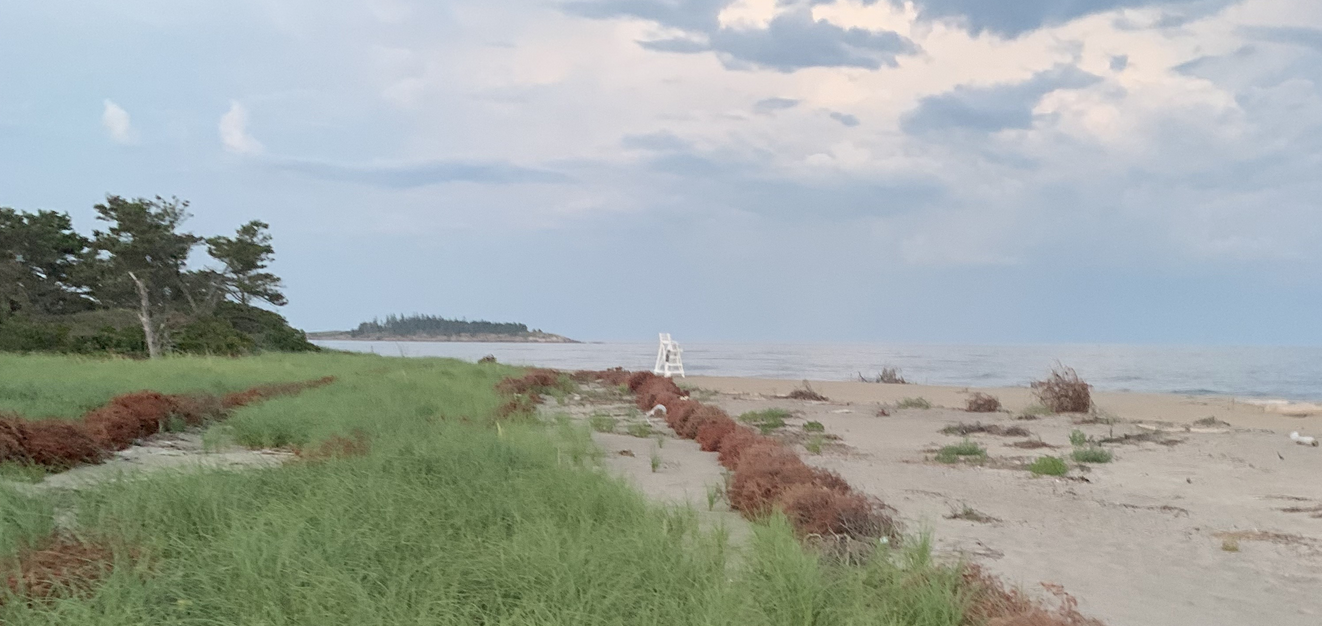
The Effects of Climate Change on Dune Ecosystems and Biodiversity
Rising seas and increasingly intense storms have transformed dune ecosystems under the influence of climate change all along the coast of Maine. Climate change poses significant threats to dune ecosystems, especially in regions like Maine where rising sea levels and increased storm frequency can accelerate dune erosion. Dunes are naturally dynamic, constantly shifting and reshaping with wind and tides, but in developed areas or when covered by invasive species that anchor them in place, their ability to adapt is restricted, making them more vulnerable to erosion, especially as climate change accelerates sea-level rise and storm intensity. The restoration of dunes is crucial as they act as natural barriers against coastal flooding while providing critical habitat. However, as sea levels rise, dunes are increasingly damaged, leading to habitat loss and declines in biodiversity and coastal protection.
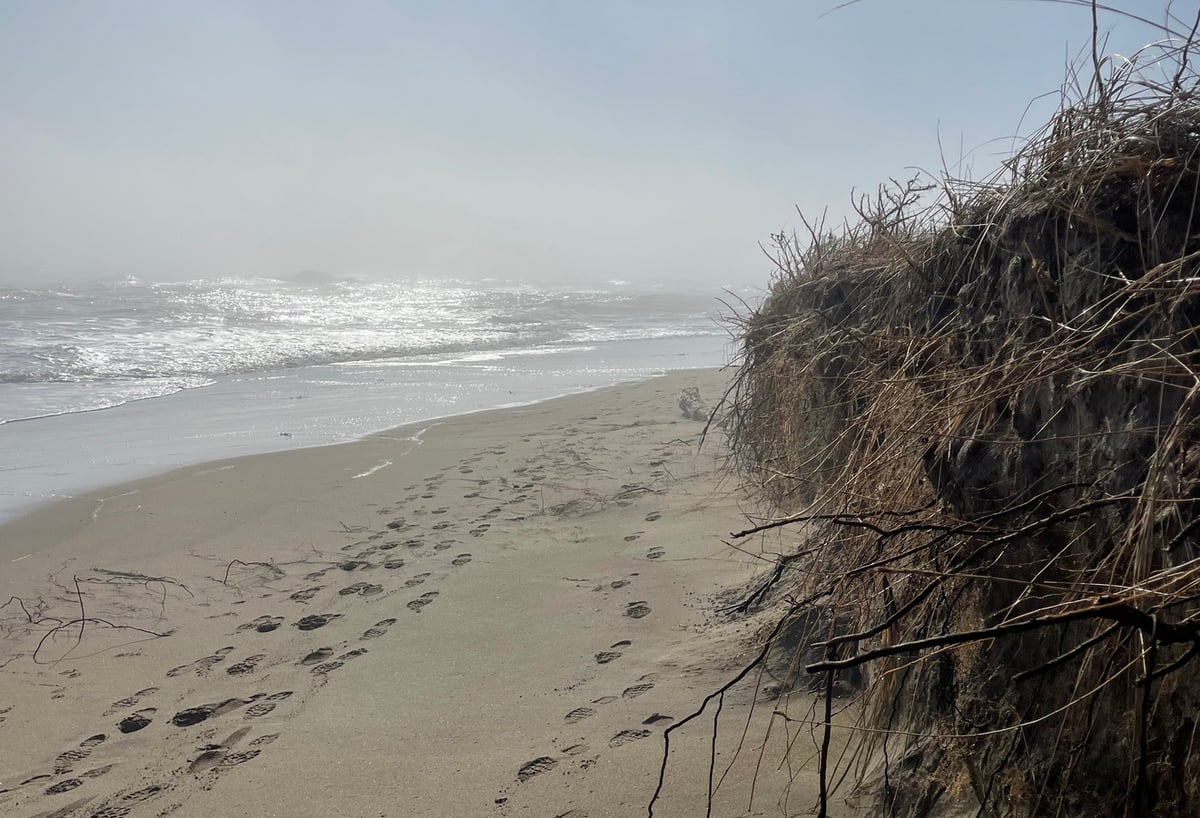
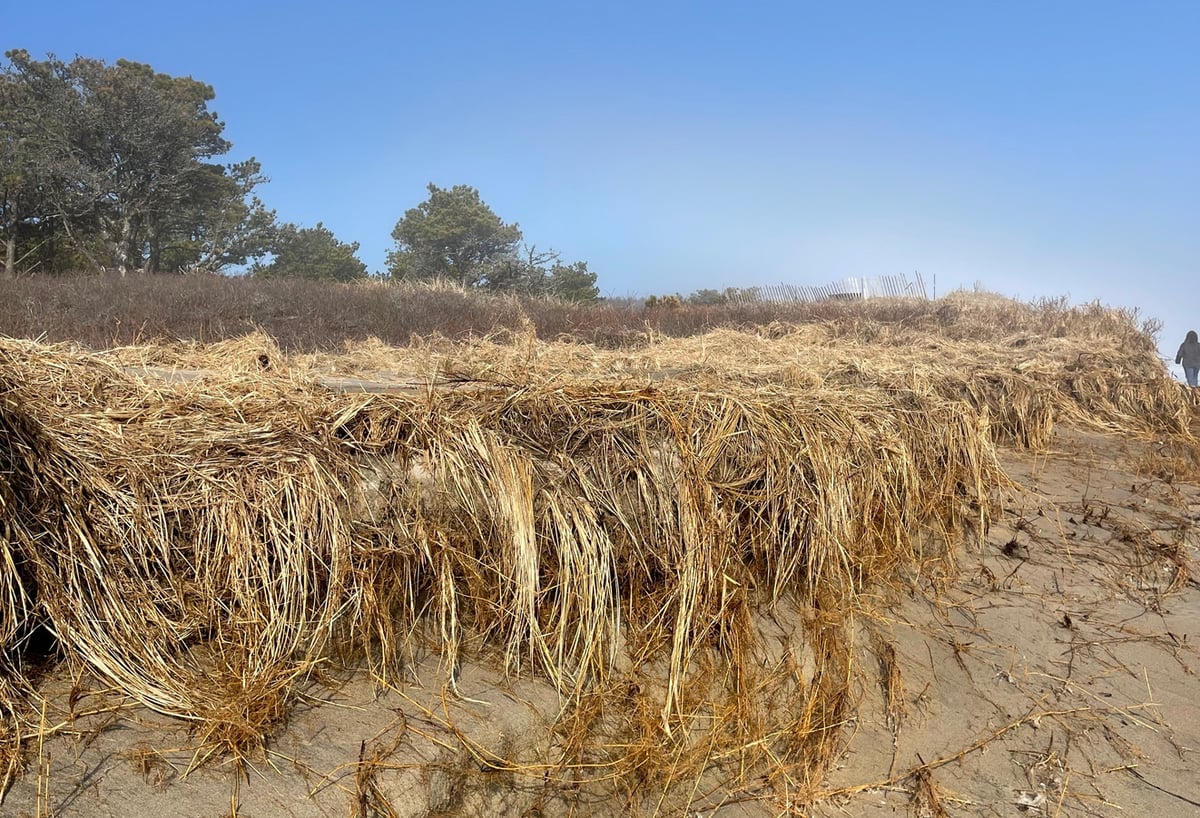
To address these challenges, Surfrider’s new Climate Action Program has been developed to equip chapters with the resources needed to implement nature-based solutions and strategies that address the impacts of climate change on coastal habitats, ensuring these ecosystems can better adapt and thrive. By engaging communities and volunteers, the program empowers local chapters to take part in on-the-ground efforts aimed at protecting and restoring dune ecosystems, among other critical habitats.
Innovative Strategies for Dune Restoration and Conservation
To combat the effects of climate change on dune ecosystems in Maine, innovative restoration and conservation strategies are being implemented. This spring, Surfrider Maine had the opportunity to assist Popham Beach State Park in a dune restoration project utilizing Christmas trees. Upwards of 700 trees were donated and collected in January 2024 from individuals and Christmas tree farms that delivered loads of unsold trees.

In May 2024, led by the State of Maine's Marine Geologist, Peter Slovinsky, and assisted by Popham Beach State Park Rangers, Surfrider volunteers dug trenches, transported trees and lightly buried them along two sections of the state park where the dunes were essentially non-existent. The trees were "planted" in rows to allow for waves to pass over them with enough space in between to collect the sand. Small plots of dune grass were planted in the areas between the rows of trees.
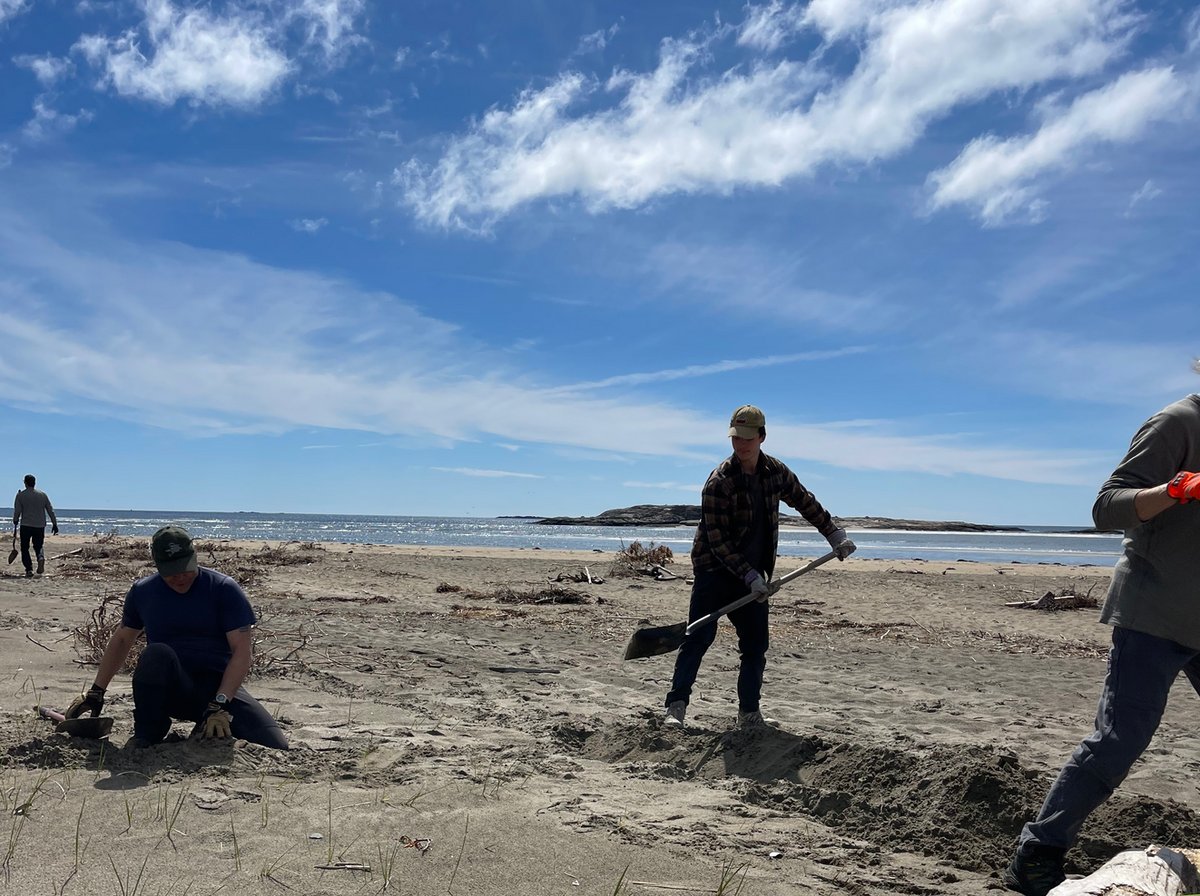
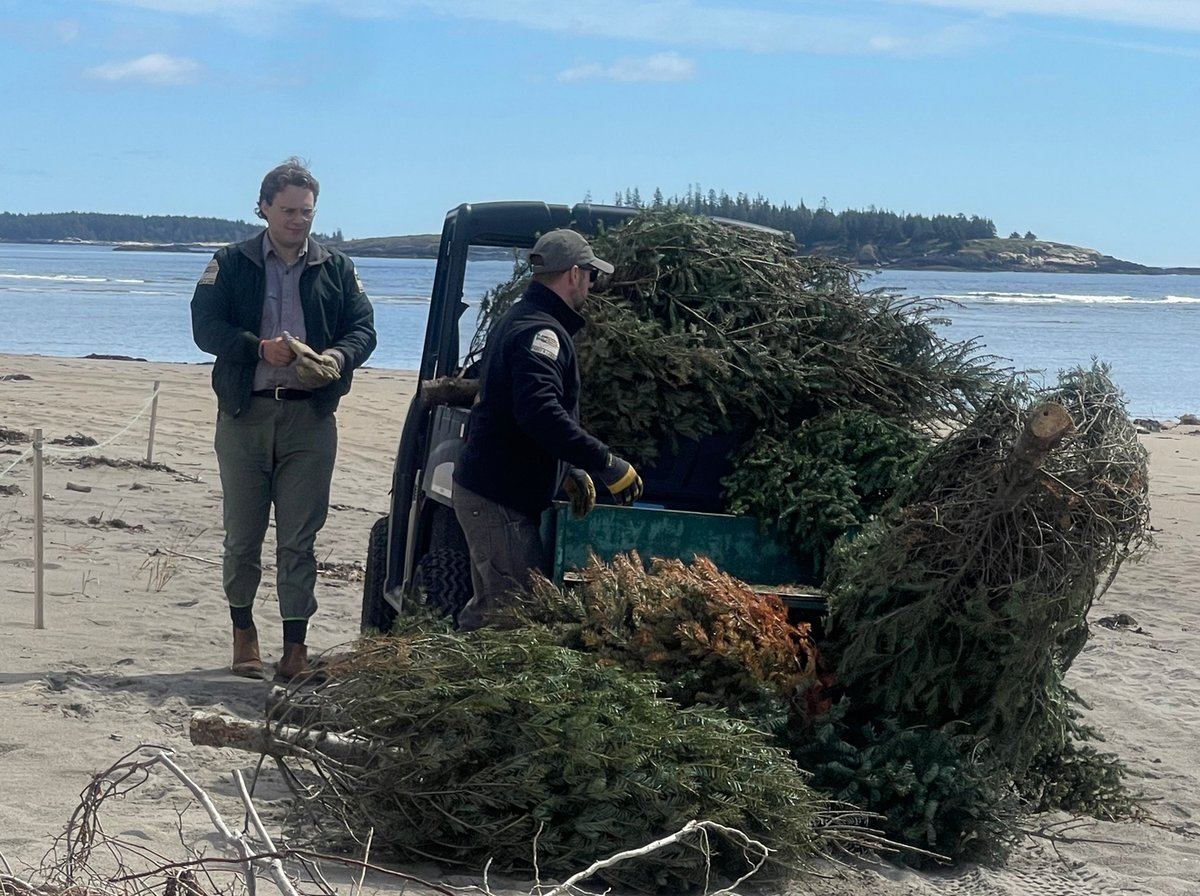
When we returned to Popham a few months later, the success of the tree planting was immediately evident. Sand had accumulated naturally between the rows of trees, creating small mounds that helped reinforce the dunes. The once-bare patches were now thriving, with dune grass taking root and spreading across the area. The combined effect of the trees and grasses was clearly restoring the dune system, showcasing how these natural elements work together to trap sand and rebuild the dunes, even in the face of challenging coastal conditions.
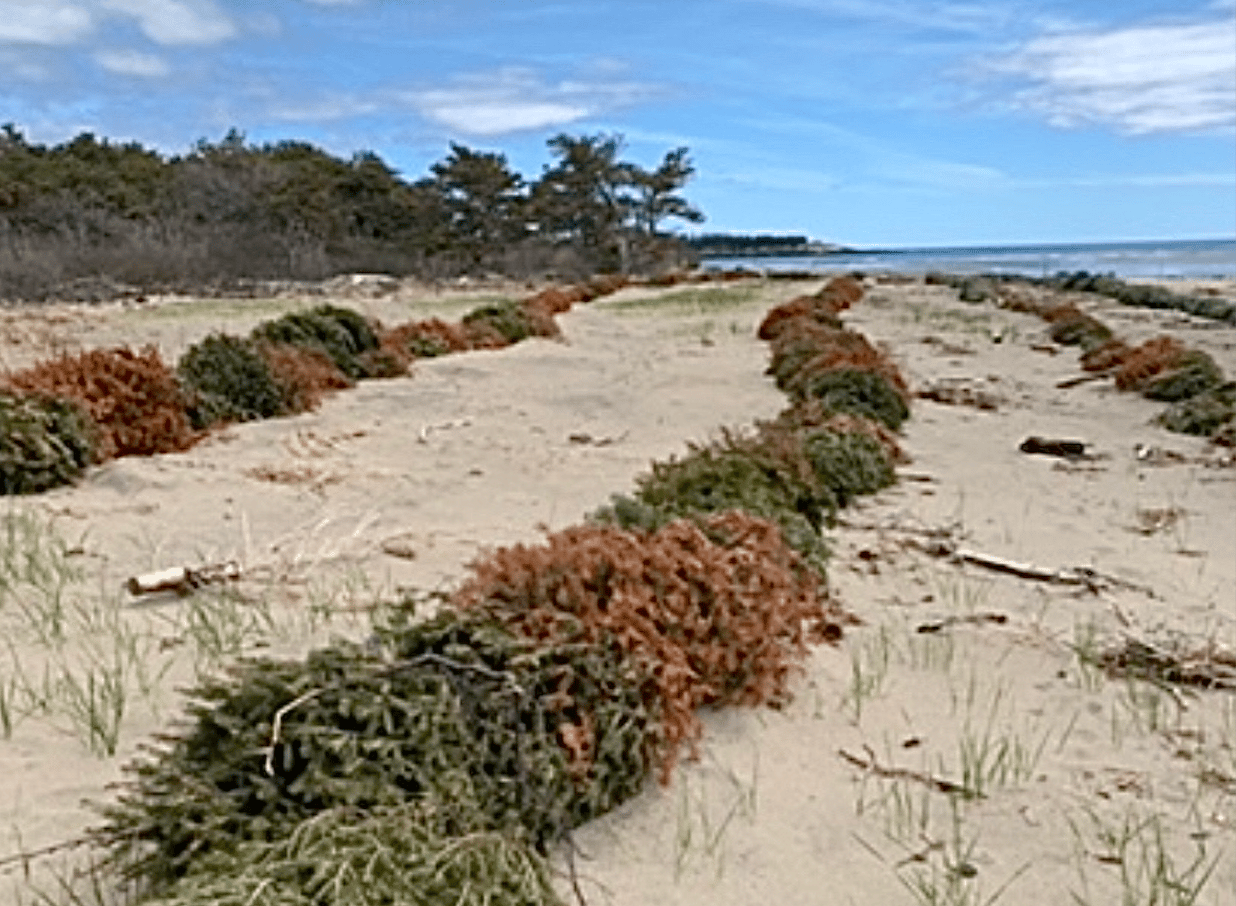
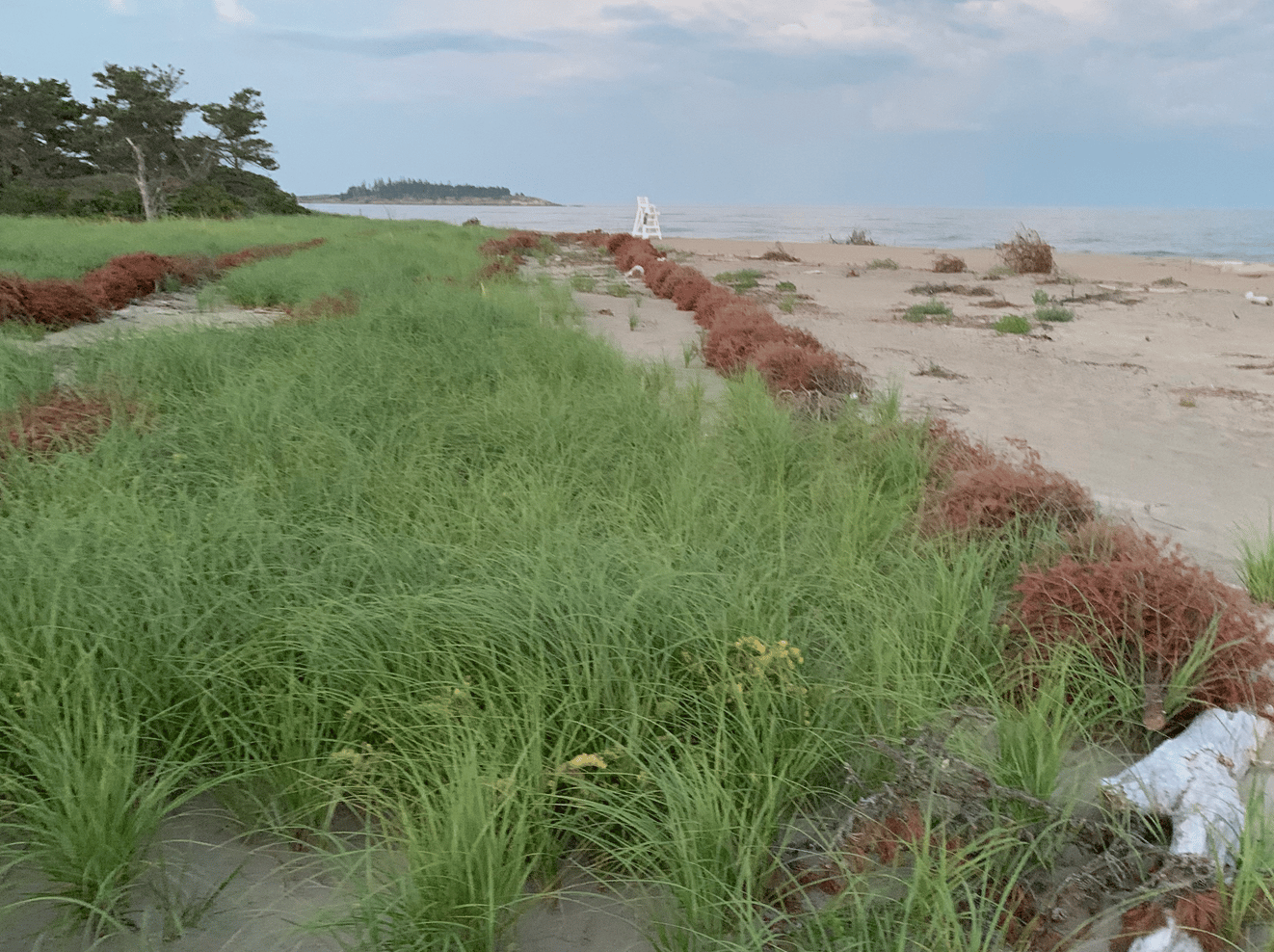
In terms of policy, there is a need for robust, forward-thinking legislation that addresses the challenges faced by coastal dune ecosystems. This may involve stricter regulations on coastal development, incentives for conservation, and the incorporation of dune restoration into climate resilience planning. As Maine looks to the future, the integration of science and policy will be critical in ensuring the health and sustainability of its dune ecosystems in the face of climate change.
Looking ahead, Surfrider's Climate Action Program will play a vital role in supporting these efforts. Surfrider Maine will continue to be involved with Christmas tree planting and dune restoration along our beloved coastline. By working with chapters across the country, this program ensures that coastal restoration projects, like those in Maine, are expanded and scaled to meet the growing challenges of climate change. Through ongoing education, restoration activities, and innovative approaches, the program aims to strengthen and protect coastal ecosystems, contributing to long-term climate resilience.
Stay tuned to our Instagram & Facebook channels along with our Events page on our website, www.surfrider.maine.com for opportunities to volunteer.
